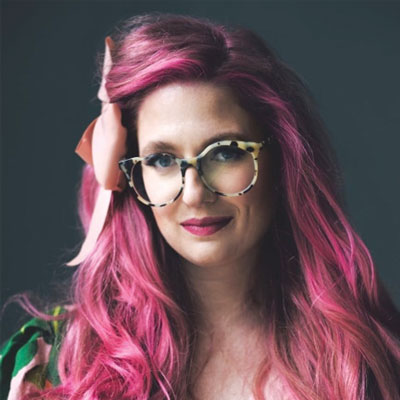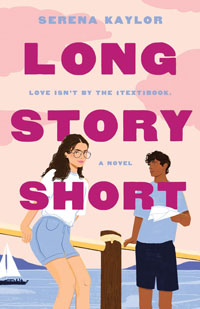Debut Author Serena Kaylor on Writing a Neurodivergent Main Character and the Magic of New Experiences
Serena Kaylor, who earned a star for her debut novel Long Story Short, shares her journey to publication.
 |
Serena KaylorPhoto by Jillian Clark |
In Serena Kaylor’s Long Story Short (Wednesday Bks., Jul. 2022), homeschooled math genius Beatrice dreams of attending Oxford University, but her parents worry their daughter can't relate to other teens. Sent to a summer theater camp that feels way out of her comfort zone, Beatrice finds friends and a chance to shine—and meets a cute British boy.
What was your inspiration for this story?
Probably myself. I’m neurodivergent, which was a lot harder when I was younger and not quite as adaptable as I am now. I remember that girl who felt so awkward, constantly misread social cues, and struggled to find a place for herself in the world, and I wanted to celebrate her. I never saw neurodivergent characters on the page growing up. I would have loved to have seen a character like that not only succeed but thrive!
How did your journey to publish Long Story Short begin?
I’ve always been a voracious reader and grew up in a tiny one-stoplight town in northeastern North Carolina where the pinnacle of my week was going to the library on Saturday morning. I would consume everything I could get my hands on, and I started experimenting with my own writing in high school in the form of a really prolific stack of contemporary Pride and Prejudice fan fiction. I had a number of false starts over the next few years, and then really committed after grad school. I read every craft book I could get my hands on. I connected with other writers on Twitter and message boards, and I wrote. I think I wrote this book about five times before I sent it out to query.
 What were the easiest and most challenging parts of telling this story?
What were the easiest and most challenging parts of telling this story?
The easiest was Beatrice herself. Her fears, her hopes, her setbacks, and the way she simultaneously wanted to hide from the world and be a part of it. She’s not me, but she’s a little bit of every neurodivergent person who tries to navigate new situations. The most challenging parts were probably the technical aspects of writing: pacing, plotting, grammar. It took at least two drafts to realize the reader probably didn’t want to just take a leisurely stroll through my brain.
How did you decide on the theater summer camp setting?
I am a huge theater kid and did a ton of plays growing up. Those experiences were so liberating to me, and I wanted to share that spirit and community with everyone! I never did a summer camp, but I was looking for a way to make Beatrice truly commit, and that setting made it all fall together.
As a debut author, what has surprised you most about the publishing process?
Probably how involved you are throughout the entire process. Part of me thought that once I finished the book it was out of my hands, but Wednesday Books has made me feel so involved through every stage. They’re checking in about cover colors and content, marketing strategies, launch details, and a million other particulars and I’m so grateful for their expertise and that I get to see this come to life from the front lines.
What do you hope readers will take away from your book?
That differences should be celebrated. That new experiences can be stressful and awful, but also exhilarating and life changing. That most people are honestly just doing their best. That Shakespeare can be hilarious and romantic. That theater kids are some of the most interesting and accepting people you will ever meet. That first love has its own kind of magic.
Long Story Short is out this month, but what's next?
I’m working on my sophomore book! I can’t share that many details but know that it will still have strong female protagonists, angsty romance, humor, found families, and maybe even a pink cover if I’m lucky.

RELATED
The job outlook in 2030: Librarians will be in demand
The job outlook in 2030: Librarians will be in demand
ALREADY A SUBSCRIBER? LOG IN
We are currently offering this content for free. Sign up now to activate your personal profile, where you can save articles for future viewing





Add Comment :-
Be the first reader to comment.
Comment Policy:
Comment should not be empty !!!